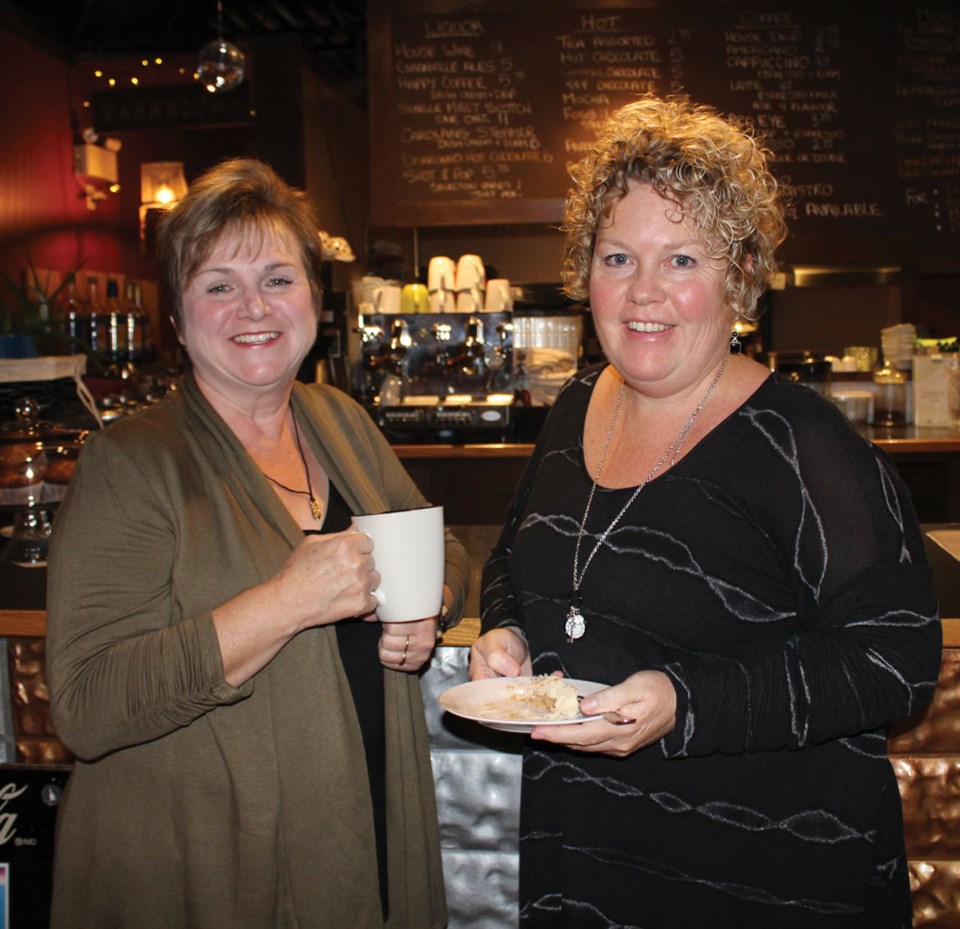You can forget any notions you may have had about the Death Café being a somber or morbid affair. The Virden coffee shop where 20 of us met for the Death Café last week hummed with animated conversation and laughter for nearly two hours.
The stated goal of all Death Cafés is to "increase awareness of death to help people make the most of their (finite) lives."
Everything else is up to the participants.
The two organizers of the Virden event, Christine Cross and Cathy Coulter, instructed us to sit at tables of four and simply start talking about death – nothing was off limits.
Many of the people there had experienced devastating loss at one time or another, and yet there were no tears or grieving that evening.
Rather, there was a candid sharing of personal stories, disappointments, and ideas on how to improve the way we as individuals and as a culture handle death.
For example, there was dissatisfaction among some attendees about how sanitized and institutionalized death has become in Canada. There was criticism of all the ingrained taboos surrounding talk of death and grief, and a desire to be more open about it.
Cherilynn Pizzey, a Virden LPN, was there and found the Death Café to be a valuable learning experience.
“I definitely will return for the open, honest discussions on death and to become more comfortable starting those conversations with family, friends and patients.”
“I feel both ladies organizing it have a lot of knowledge to share and I can learn from them both!”
Co-facilitator Christine Cross worked in home care for many years. "The most rewarding part of my work was helping people make plans for end of life care including dying at home. We can’t honor the wishes of our loved ones if we don't talk about it."
Cross's mission is to get that conversation started within her community, because, "Your family needs to know the kind of care you want before, during, and after you die.”
Looking around the coffee house that night, it was clear she hit a nerve. Many questions were raised like: What if we could die at home like people used to do? What about using traditions from other cultures like wakes, open caskets and viewings? What about children, do they need to be protected from the reality of death?
One common theme was how the business of death seems to exclude the bereaved from any hands-on involvement in what are deemed unpleasant aspects of the process. Families are often shielded from caring for the terminally ill at home, washing and dressing the body after death, and having time with the departed to say goodbye.
Some participants felt they got the message from health care and funeral providers that, "This is just how it's done, leave it to us." The grieving family nods agreement through their tears, and only after time has passed do they wonder if it could have been different, more satisfying, and more authentic - more in keeping with what Grandma, Dad, or Brother would have wanted.
Possibly the biggest surprise about the Death Café was how natural these discussions about death were - how easy and comfortable. If anyone arrived with apprehensions, they quickly evaporated with the help of coffee, cake, and warm, friendly conversation.
Co-facilitator Cathy Coulter summed up the Virden Death Café as “a fabulous exchange of wisdom and information.” They plan to hold more of them.




